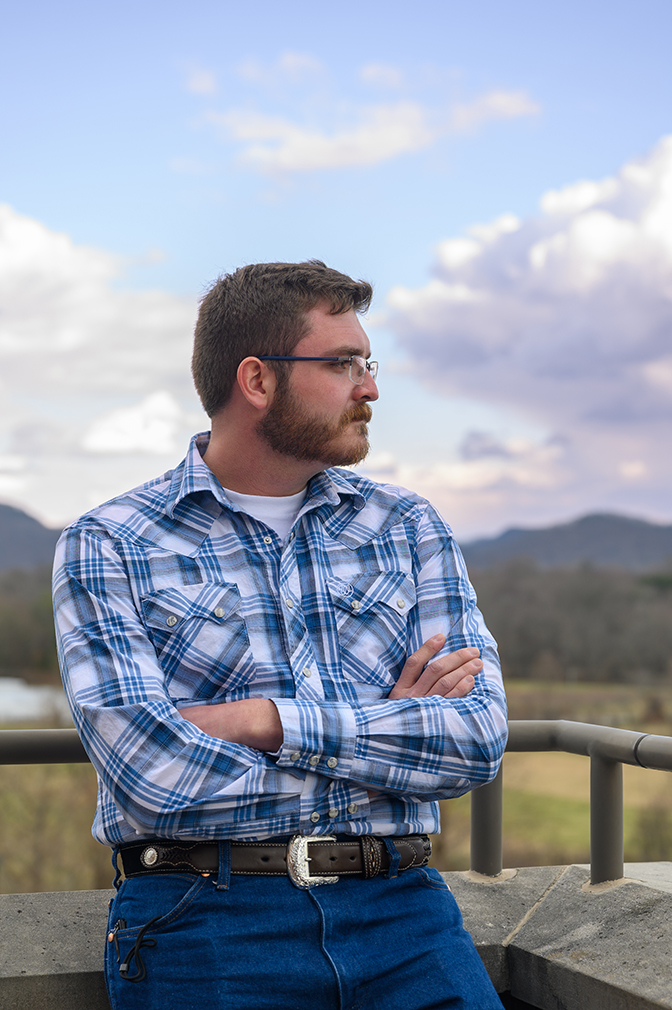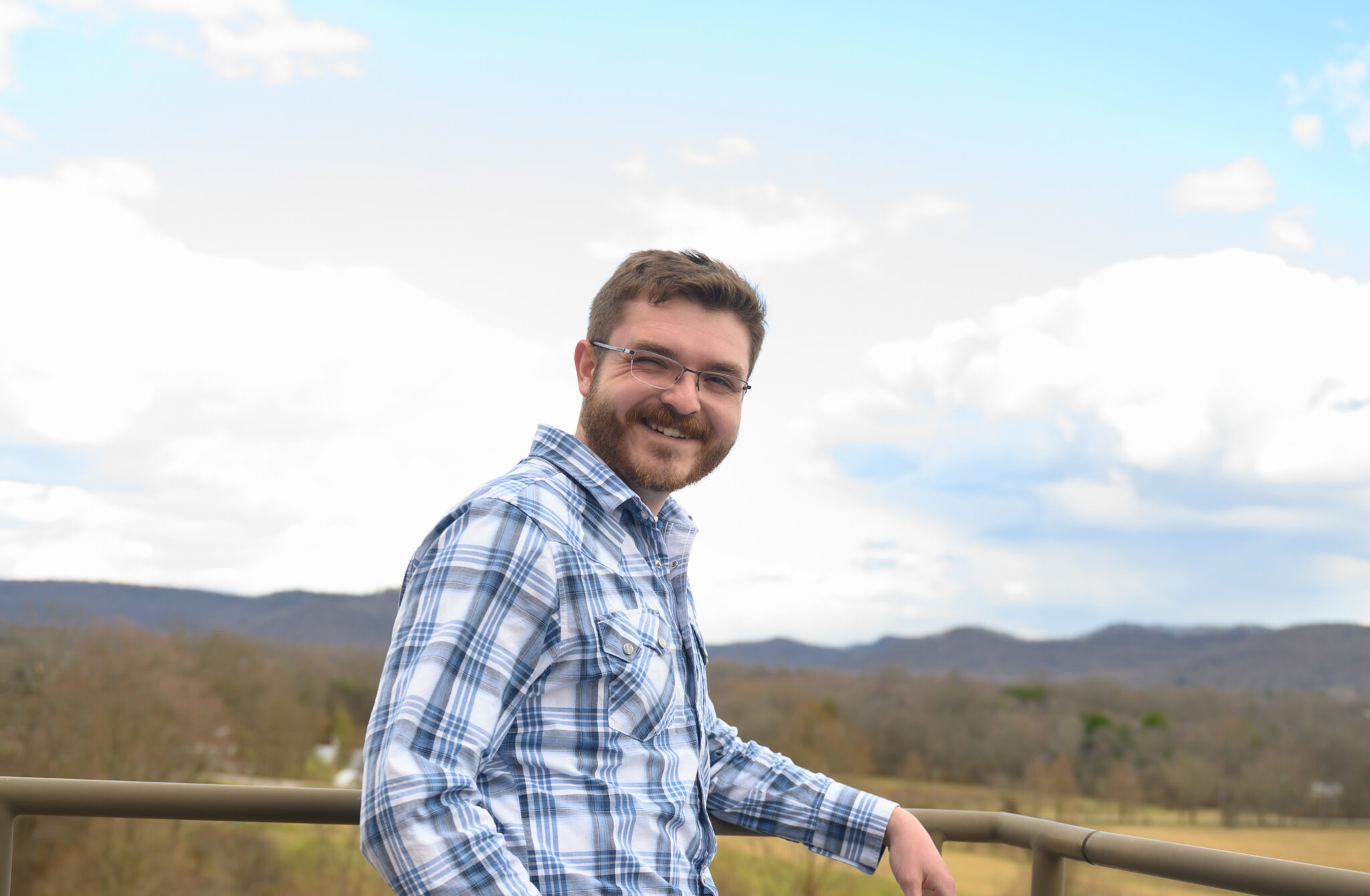For Adam LeMaster ’25, identity was difficult to pin down. He knew he was Appalachian, although he didn’t have the words to describe exactly what that meant. As he spent his formative years in eastern Kentucky on his grandfather’s farm atop a hill, he heard stories of his grandfather’s farm being taken to develop a highway, before his grandfather fought the decision in court and ultimately saved large chunks of the farm. Now, with a deeper understanding of his identity as a person from Appalachia and experience dealing with the law, he plans to use his political science degree as a springboard to law school. Adam hopes to serve his region by helping other Appalachian people struggling with eminent domain to understand their rights.
Adam started thinking about college when he heard stories from his parents about their experiences. His mother attended Berea, and Adam heard all her stories about the College while he was growing up. He says her experience was a motivator for him to apply to the College, especially given how she described the academics Berea offers.
“It always sounded nice,” he said. “I had considered myself a very studious person. I told myself, ‘I’m going to go to law school!’ That’s my plan, still, but something about the academic rigor of Berea really attracted me.”
Adam was a natural candidate for Berea. But when it came to his understanding of what being from Appalachia meant before he came to Berea, it boiled down to being a “rural kid.”
I knew my community was part of the larger Appalachian region, but I never really had a cohesive understanding of what it meant to be an Appalachian person. The extent of my experience with being an Appalachian person was being a country person….
Adam LeMaster ’25

“I knew my community was part of the larger Appalachian region, but I never really had a cohesive understanding of what it meant to be an Appalachian person. The extent of my experience with being an Appalachian person was being a country person—I was raised rural.”
With this perspective, he hadn’t thought of his experience in Appalachia as a distinct culture until he arrived at Berea. As part of his first-year courses, Adam took a class on Appalachian culture. The course put words to feeling, and as his first year came to a close, Adam could articulate his lived experience as an eastern Kentuckian more clearly.
“What I came to find is that I resonated with everything we talked about: Appalachian culture, having a very deep connection to place, feeling not just attached but tethered to your home place and your family and feeling those kinds of responsibilities, feeling extremely homesick every day, every waking moment. It was like pulling magnets apart. It was something that was always present, I just didn’t have the words for it until I got here.”
That connection to place resonated deepest when his grandfather’s land became subject to eminent domain. Adam’s grandfather felt the highway surveyors were planning to take much more than necessary.
“They stood on one side of the valley, shot right across the other, and said, ‘Yup, that’s how much land we need to take,’” he said.
The survey of the farm threatened to take hundreds of feet off both hillsides of the farm. His grandparents fought the decision in court, leading to a new survey and a much more reasonable acquisition.
As he plans for a future law career, his path remains flexible, but his thoughts are rooted in Appalachia. Aside from eminent domain, there are still plenty of issues to be settled by lawyers in the region, including personal lawsuits. A big issue is abandoned coal mines, Adam says.
“Most of this region, throughout the eastern part of the state at one time or another, had very heavy coal mining operations. So, there’s a lot of questions about what to do with the old coal mines because many of them are still owned by companies that are based in New York and Chicago.”
The question of what to do with former mines becomes front and center for the surrounding local communities. Eastern Kentucky groups and lawyers are working on plans to develop the land more sustainably.
“A lot of [the work] is restorative in nature,” Adam explained. He said many attorneys working in eastern Kentucky communities seek the best ways to restore land to be as useful for surrounding communities as possible even if they cannot restore land ownership.
Adam will be taking his new understanding of culture and identity with him into his law career. Wherever it takes him, he hopes to be of service to his home community and to continue to build upon the skills he learned at Berea.


